I started cleaning my kitchen naturally and I haven't looked back – these are the 5 solutions I swear by
Make the switch to natural cleaning methods by adding these greener solutions to your kitchen supplies list
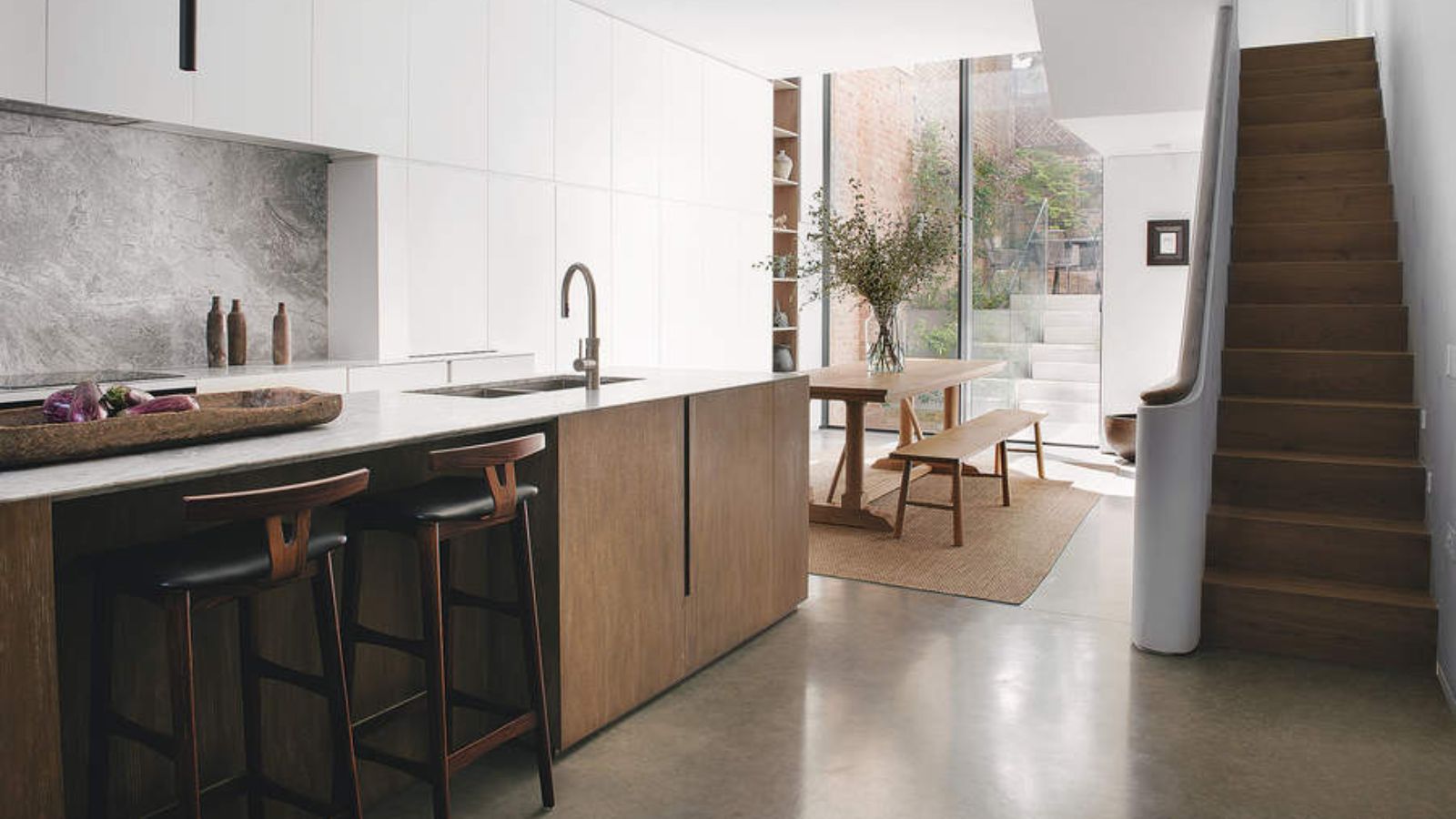

As someone who spends a lot of time in the kitchen, I’ve tried a number of cleaning products over the years, and I’ve definitely found some are better than others...
Of all the tools I like to use to clean my kitchen, natural cleaning solutions not only tend to smell better than commercial products, but they’re often less toxic and can reduce exposure to harmful chemicals.
Natural ingredients can be just as effective as commercial products, and most of the cleaning agents I use on a daily basis are easy to get hold of and are often multipurpose (so you can tackle various cleaning tasks with just a few items).
How to clean a kitchen naturally
From experience, eco-friendly sustainable cleaning swaps are gentler on kitchen surfaces, which helps to preserve the longevity of your kitchen countertops and cabinets. Commercial cleaners can sometimes cause damage or discoloration over time, but natural alternatives tend to be milder.
I spoke with a handful of professional cleaners who agreed that cleaning a kitchen naturally is straightforward and easy if you have the correct tools. Here are the 5 products we all recommend:
1. Cleaning with Lemons
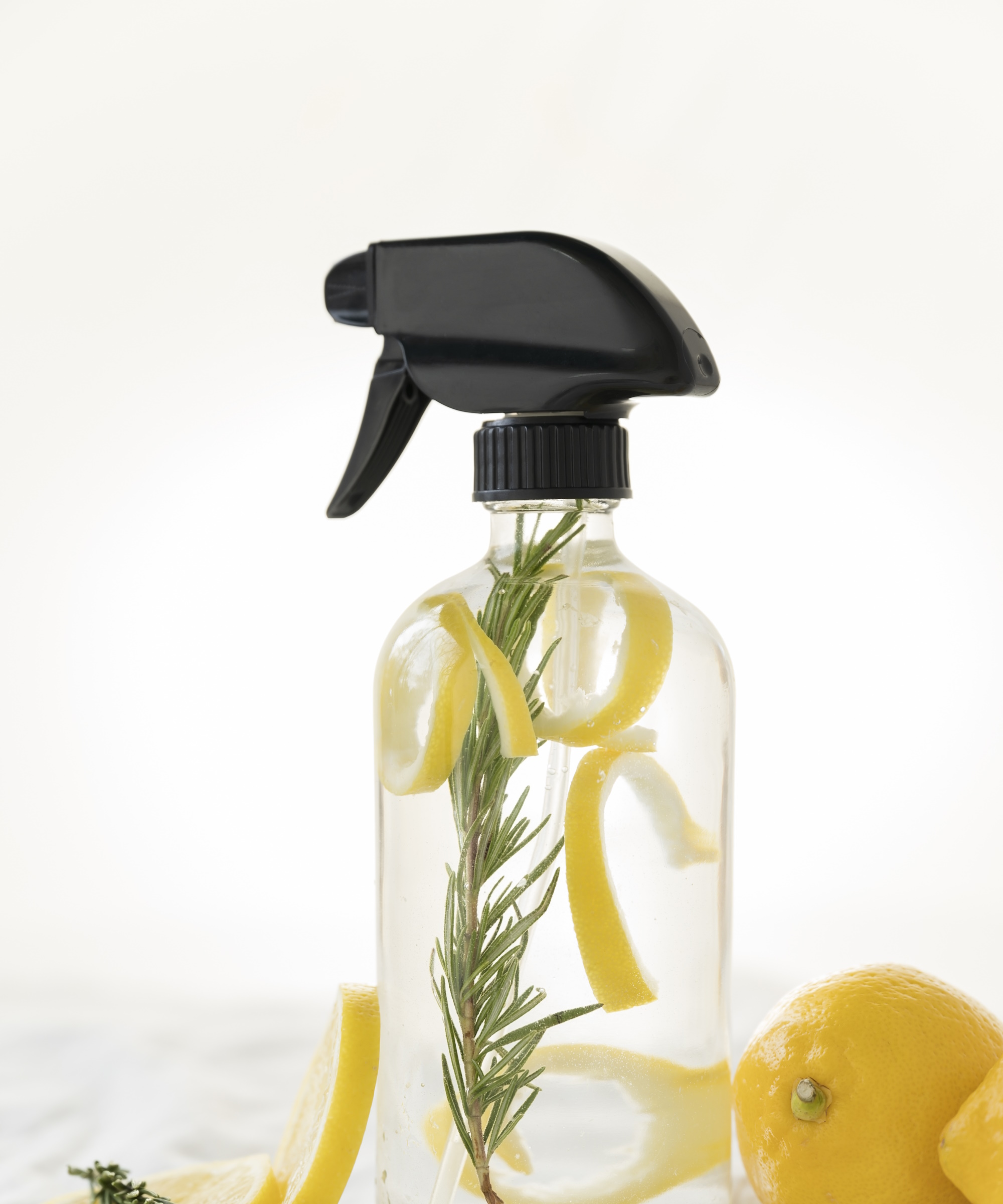
Lemon juice is a powerhouse in natural cleaning due to its high acidity and antibacterial properties. Katie Dills, President of The Cleaning Authority, waxes lyrical about the versatility of using lemons to clean a kitchen:
‘Lemon is a must in the kitchen. For any lingering food smells, you can mix a few drops of lemon with water and spray throughout the kitchen,’ Katie explains. ‘If the odor lives in the fridge or garbage can add two drops of lemon essential oil to a cotton ball and stick it in the back of the fridge or bottom of the trash can to absorb them.’
‘Lemons can also deodorize drains,’ she continues. ‘Running a couple of lemon rinds through the garbage disposal will eliminate odors coming from the sink.’
To clean wood cutting boards, I sprinkle 1/3 cup of coarse salt evenly over the board, let it sit for 10 minutes, and scrub the salt into the board with half a lemon. Rinse with hot water and let dry.
Lemons also have a natural bleaching effect, which can help lighten stains on countertops and other surfaces. However, from experience, you should not use lemon on marble or some natural stone countertops as the acid can etch the stone or leave unsightly stains.
2. Baking Soda
Unless you’ve been living under a rock, you’ll know that there are countless things you can clean with baking soda. It's incredibly versatile and its gentle abrasive quality makes it ideal for scrubbing away dirt, mildew, and stains.
I’ve found baking soda is highly effective at neutralizing bad odors and can be used in various parts of the kitchen, from cleaning appliances to freshening up the refrigerator. Try making a paste with baking soda and water to tackle stubborn stains on countertops, sinks, and stovetops. You can also sprinkle baking soda on a damp sponge to clean surfaces without scratching them.
3. Hydrogen Peroxide
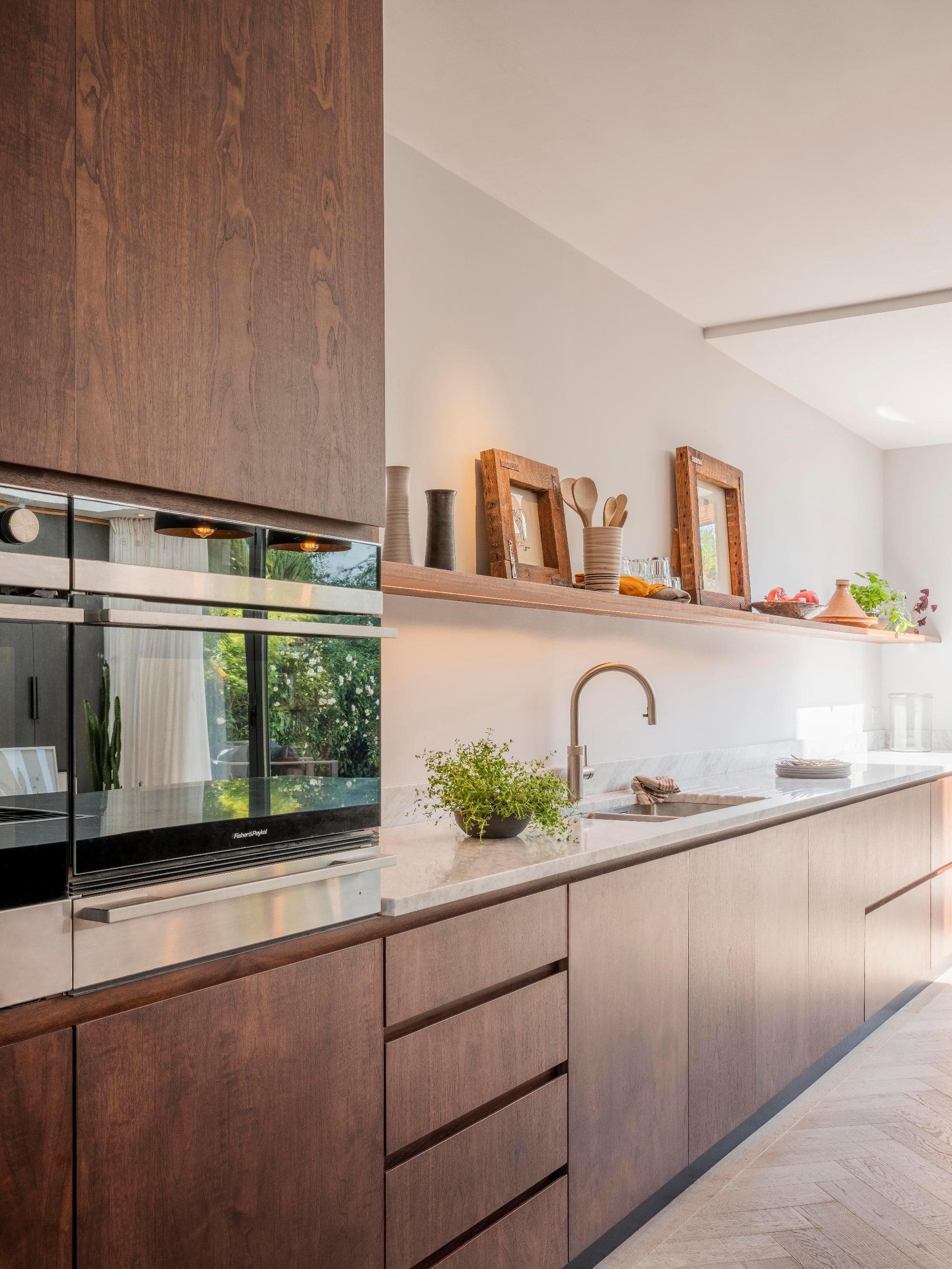
Hydrogen peroxide is a potent disinfectant that can be safely used on a variety of kitchen surfaces. It effectively kills bacteria, viruses, and fungi, making it a great choice for maintaining a hygienic kitchen environment.
I find that hydrogen peroxide is particularly useful for disinfecting countertops and sinks. Simply apply it to a surface and allow it to sit for a few minutes before wiping the area clean with a damp cloth. Be sure to use it in a well-ventilated area and wear gloves to protect your skin though.
You can also use hydrogen peroxide to clean your sponges and dishcloths. Soak them in a mixture of hydrogen peroxide and water to disinfect and remove odors. Just remember to store hydrogen peroxide in a dark bottle, as it can break down when exposed to light.
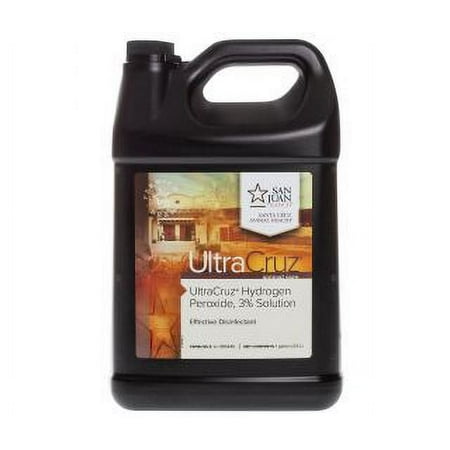
I like to keep a one-gallon container of hydrogen peroxide in my cleaning supply closet for effective cleaning and disinfecting. It's far more affordable than buying lots of little bottles from the drugstore.
4. Vinegar and Water Solution
White vinegar is a powerful natural cleaner due to its acidity, which helps dissolve mineral deposits, grease, and grime. Rhonda Wilson, Quality Lead at FreshSpace Cleaning, swears by the power of cleaning with vinegar. Her go-to multipurpose cleaning solution is equal parts white vinegar and water mixed in a spray bottle:
‘Simply spray this solution onto kitchen surfaces, let it sit for a few minutes, and wipe clean with a damp cloth,' Rhonda explains. 'This solution effectively cuts through grease and grime, and it leaves surfaces sparkling clean without any harsh chemicals.’
I always keep a bottle of vinegar on my essential cleaning supplies list, as it’s excellent for cleaning glass and stainless steel, removing water stains and leaving surfaces streak-free.
Keeping a bowl of vinegar by your stove is a great way to minimize kitchen odors and to deodorize your microwave, try filling a microwave-safe bowl with equal parts water and vinegar, then heat it on high for a few minutes. The steam will loosen any food splatters, making them easy to wipe away.
You can also clean with apple cider vinegar; however, like lemon juice, you should avoid using vinegar on natural stone countertops as the acid can damage the surface.
5. Dr. Bronner's Sal Suds Biodegradable Cleaner
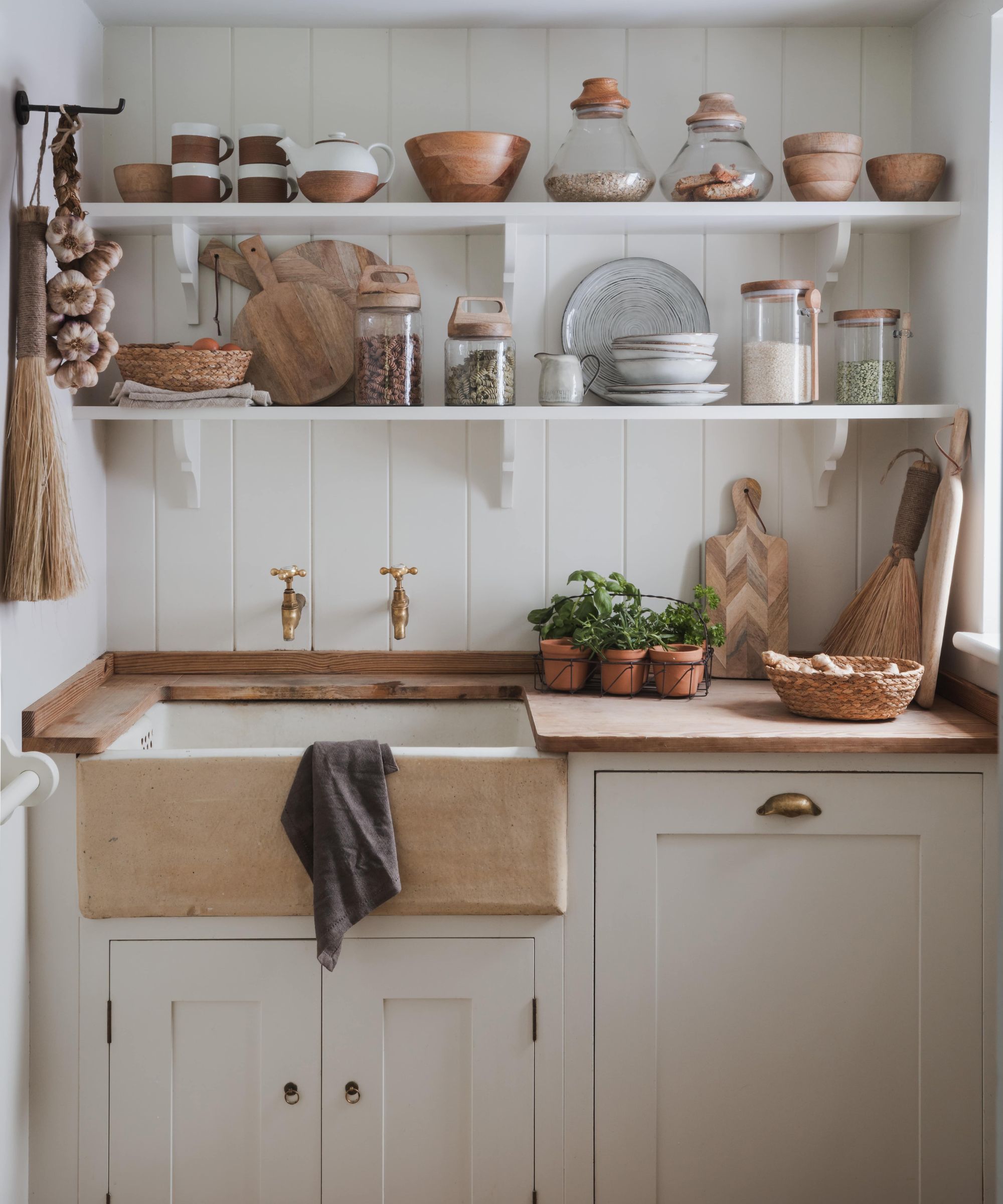
Delah Gomasi, CEO of MaidForYou cleaning services, swears by Dr. Bronner's Sal Suds Biodegradable Cleaner: ‘The best natural cleaning tip for kitchen surfaces is to use a natural cleaner like Dr. Bronner's Sal Suds Biodegradable Cleaner from Walmart. It works amazingly well for all surfaces in the kitchen, and we use it to clean dishes and kitchen countertops without leaving streaks.’
This product is extremely popular in eco-warrior circles as it's zero-waste, which is perfect for the environment. Thanks to Delah’s recommendation, I’ve been using it to mop my floors, and they've never looked cleaner (plus, I'm quite partial to the fresh foresty scent). I do recommend wearing gloves when using this product though, as it has the tendency to dry out your skin.
Whether you’re tackling tough worktop stains, neutralizing kitchen smells, or simply disinfecting surfaces after dinner, give these natural solutions a try the next time you deep clean your kitchen. Small changes like these can make a bigger impact on your health and the environment (and your wallet!).
Sign up to the Homes & Gardens newsletter
Design expertise in your inbox – from inspiring decorating ideas and beautiful celebrity homes to practical gardening advice and shopping round-ups.

Thomas Litten is a freelance food and drink writer whose articles and product reviews have been featured in a variety of national publications. His introduction to food and drink came through the hospitality sector, running bars for Michelin-starred restaurants. This experience, plus a love of good food, wine, and spirits, led to a career selling premium drinks to high-end restaurants and later providing consultancy services to food and drink start-ups across the UK. Now, based in southwest England, he mainly divides his time between working for a leading bakery business, visiting coffee shops, and collecting and writing about kitchen gadgets.
-
 Kevin Bacon and Kyra Sedgwick's rustic kitchen island is stunning, but controversial – designers say you can get the look without the hassle
Kevin Bacon and Kyra Sedgwick's rustic kitchen island is stunning, but controversial – designers say you can get the look without the hassleA popular material finds an unorthodox home in the couple's kitchen, but experts disagree on whether it should be used – here's how to do it instead
By Sophie Edwards
-
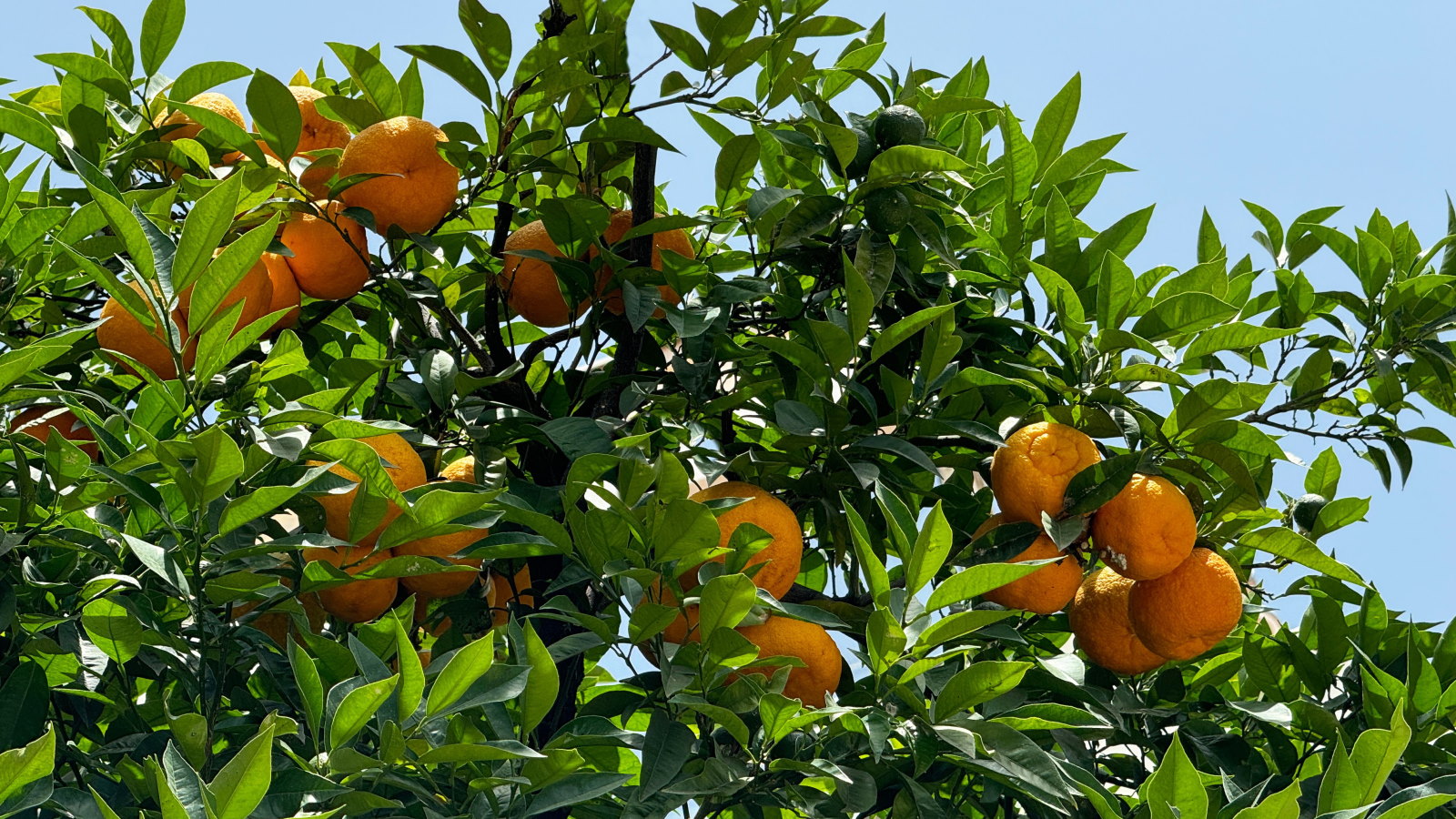 How to grow grapefruit for homegrown sweet and tangy, highly nutritious harvests – a fruit tree expert shares their planting and care tips
How to grow grapefruit for homegrown sweet and tangy, highly nutritious harvests – a fruit tree expert shares their planting and care tipsFrom planting to harvesting, this is all you need to know about grapefruit trees
By Drew Swainston
-
 I've spent over 200 hours testing vacuums and swear by my two Dysons – this is how I properly clean a Dyson vacuum filter for longer-lasting appliances
I've spent over 200 hours testing vacuums and swear by my two Dysons – this is how I properly clean a Dyson vacuum filter for longer-lasting appliancesYour Dyson vacuum will last much longer and clean at its best
By Dan Fauzi
-
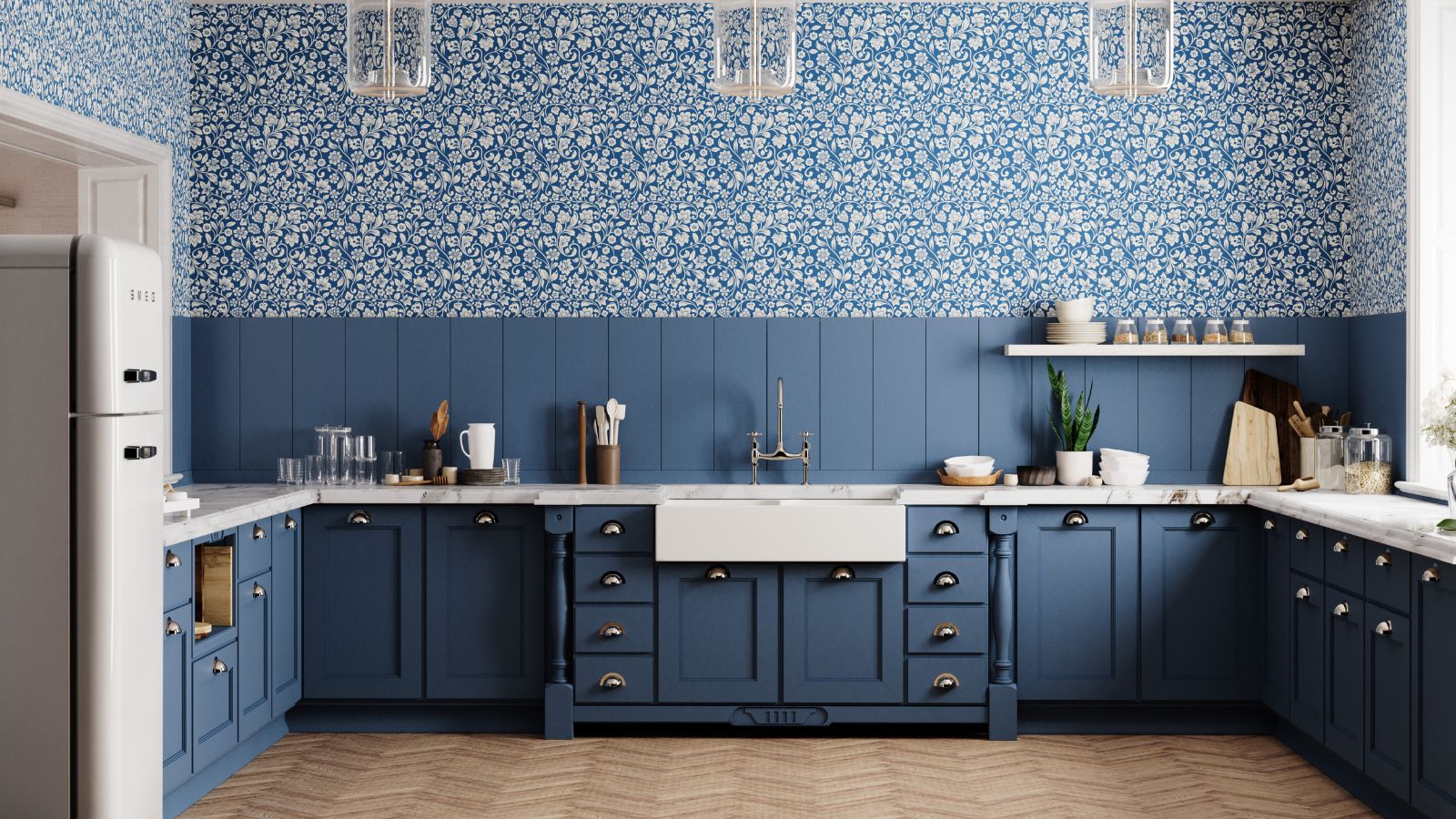 Do cleaning products expire? Professional cleaners warn time could make them ‘less effective, and in some cases, irritating to use’
Do cleaning products expire? Professional cleaners warn time could make them ‘less effective, and in some cases, irritating to use’For the best results, it pays to stay on top of the timeline of your cleaning products
By Chiana Dickson
-
 How to clean a patio – 6 different methods, and when you must use a chemical cleaning agent
How to clean a patio – 6 different methods, and when you must use a chemical cleaning agentFrom manual scrubbing, natural solutions or calling in the pros, industry experts reveal the benefits and considerations of each method
By Andy van Terheyden
-
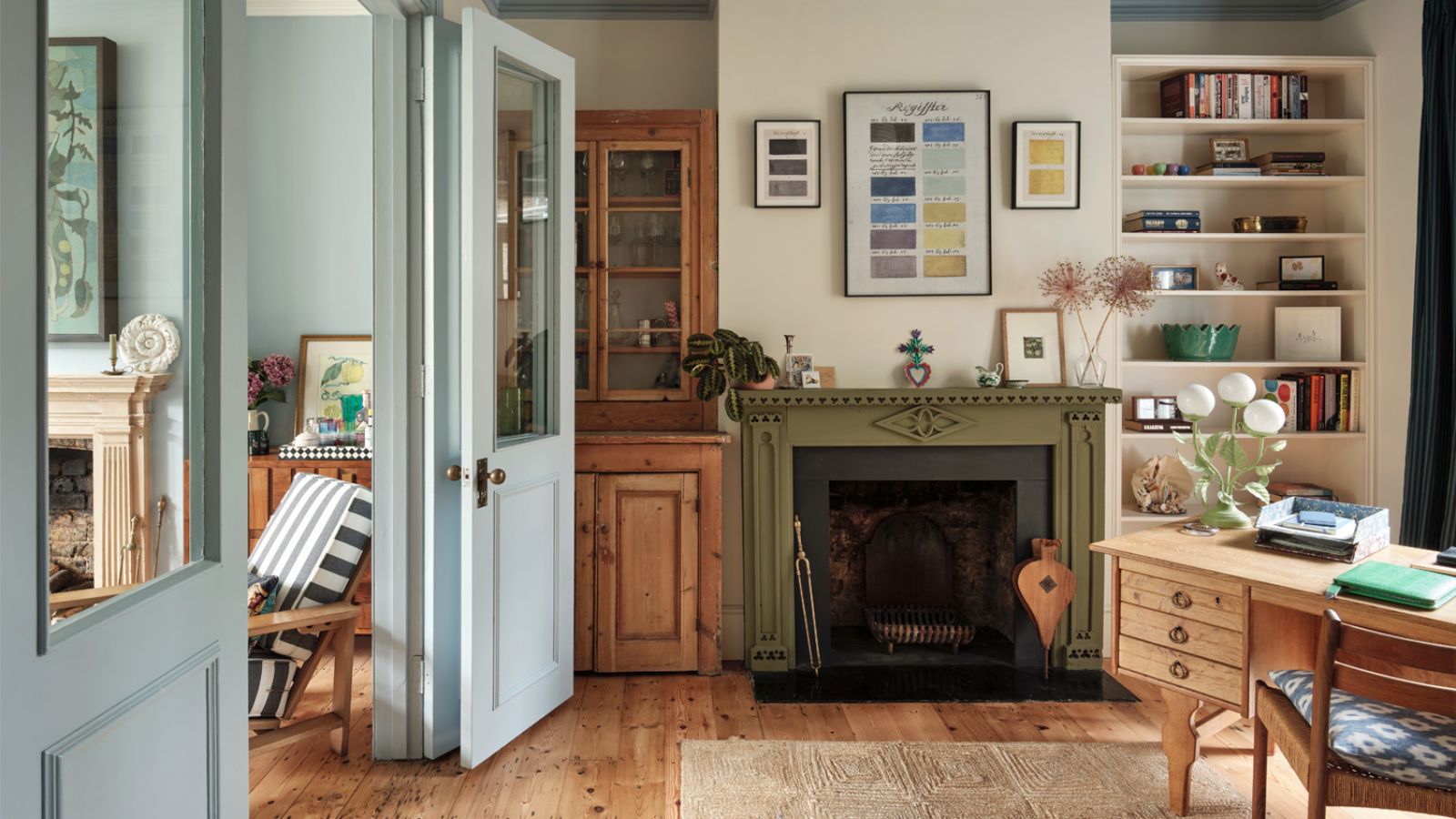 5 surprising but brilliant ways to clean with old socks – from perfectly buffing stainless steel to deterring pests naturally and more
5 surprising but brilliant ways to clean with old socks – from perfectly buffing stainless steel to deterring pests naturally and moreTackle dust in tricky corners, clean your mirrors and even banish bad odors with those rogue single socks
By Andy van Terheyden
-
 5 things people with clean upholstery always do – simple, quick and oh-so-effective
5 things people with clean upholstery always do – simple, quick and oh-so-effectiveEnsure your furnishing looks clean year-round with these expert tips
By Seraphina Di Mizzurati
-
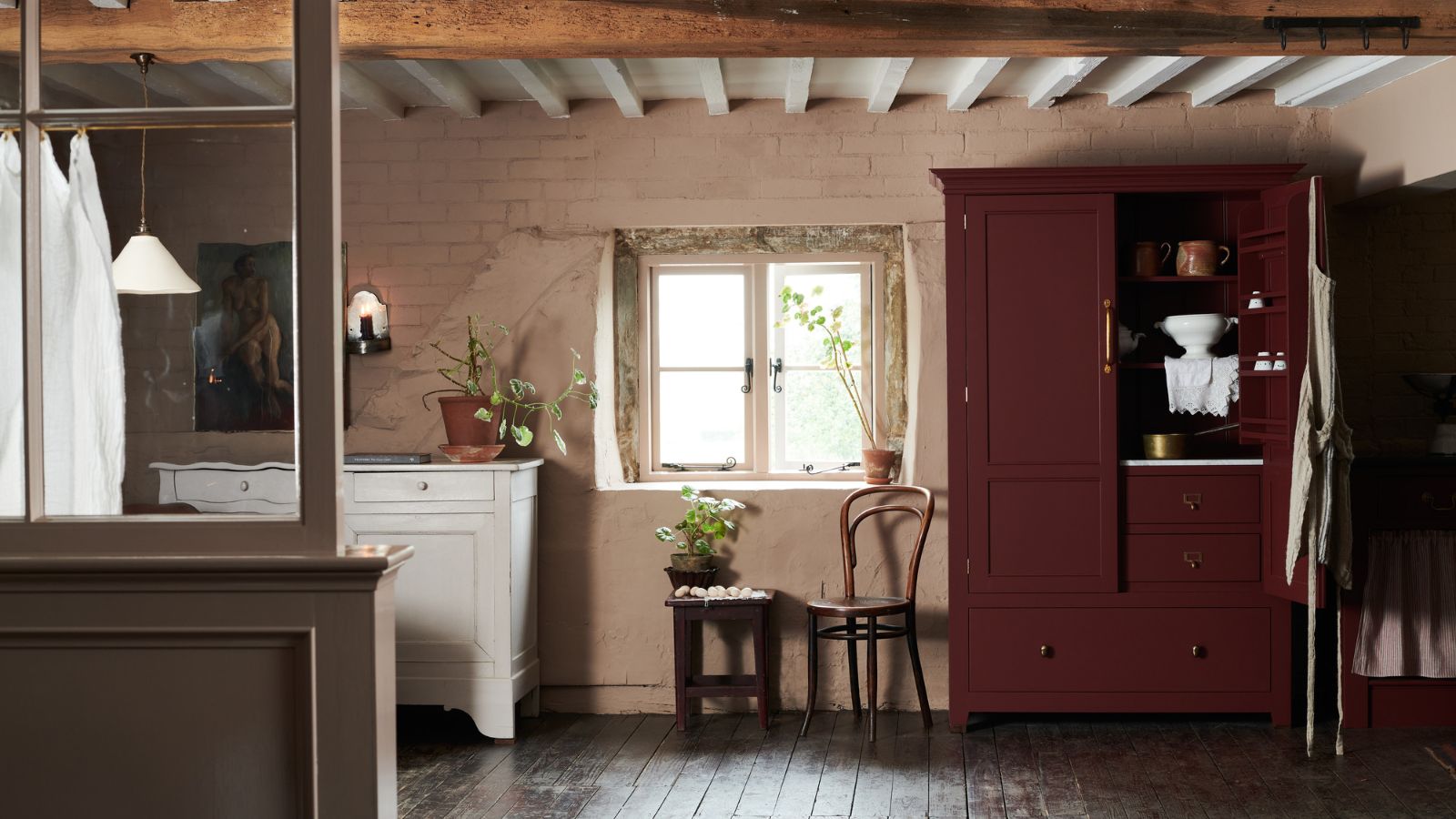 'Wick away the ick' – 6 things people with clean laundry rooms always do to make this hardworking space shine
'Wick away the ick' – 6 things people with clean laundry rooms always do to make this hardworking space shineThese tips on how to clean your laundry room will banish grime
By Seraphina Di Mizzurati
-
 How safe are carpet deodorizers? As a seasoned vacuum tester, I urge you to try alternative methods
How safe are carpet deodorizers? As a seasoned vacuum tester, I urge you to try alternative methodsNatural cleaning is always the answer
By Dan Fauzi
-
 'The world will not end' – 5 cleaning habits to quit for a happier, easier life, and what to do instead
'The world will not end' – 5 cleaning habits to quit for a happier, easier life, and what to do insteadGet your home sparkling, minus the stress
By Ciéra Cree